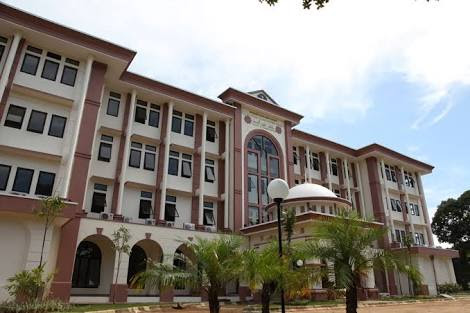DEVELOPMENT OF ELEMENTARY LINEAR ALGEBRA COURSE E-MODULES BASED ON FLIP BOOK MAKER WITH INTEGRATED ISLAMIC VALUES
PENGEMBANGAN E-MODUL MATA KULIAH ALJABAR LINEAR ELEMENTER BERBASIS FLIP BOOK MAKER YANG TERINTEGRASI NILAI-NILAI KEISLAMAN
Abstract
The aims of this study were (1) to find out the process of developing an e-module for elementary linear algebra courses based on a flip book maker that integrates Islamic values. (2) to determine the characteristics of the e-module. (3) to determine the level of validity, practicality, and effectiveness of e-modules. The type of research used is Research and Development concerning the Plomp development model which consists of 5 stages. The product developed is an e-module course on elementary linear algebra based on a flip book maker. The test subjects in this study were second-semester students at UIN Alauddin Makassar, in the academic year 2021/2022. The instruments used were expert validation sheets, lecturer response questionnaires, observation sheets on the ability of lecturers to manage to learn, learning implementation observation sheets, student response questionnaires, student activity sheets, and learning achievement tests. Based on the trial results, it was found that (1) the product development process referred to as the Plomp development model was not fully implemented until the implementation stage due to time constraints, (2) the characteristics of the e-module are digitally designed with the flip book maker application which can be accessed using Android or Android. laptop, load learning videos, load examples of contextual questions integrated with Islamic values, and presentation of material using a scientific approach, (3) e-modules are categorized as valid with an average validity of 4.25, declared practical because all aspects are fully implemented, and declared effective because the level of completeness reached 96.3%.
Downloads
References
Aniyati, K. (2019). Efektivitas pendekatan saintifik terhadap keterampilan berpikir tingkat tinggi siswa pada pembelajaran matematika kelas 5 Madrasah Ibtidaiyah. [Skripsi]. Universitas Islam Negeri Maulana Malik Ibrahim.
Arsyad, N. (2016). Model pembelajaran menumbuh kembangkan kemampuan metakognitif (A. Juhari, Ed.). Makassar: Pustaka Refleksi.
Bloom, B. S. (1981). All our children learning. New York: McGraw-Hill Book Company.
Diana, M., Netriwati, N., & Suri, F. I. (2018). Modul pembelajaran matematika bernuansa islami dengan pendekatan inkuiri. Desimal: Jurnal Matematika, 1(1), 7. https://doi.org/10.24042/djm.v1i1.1906.
Ekawati, T., Anggoro, bambang S., & Komarudin, K. (2019). Pengembangan modul pembelajaran matematika pada materi statistika terintegrasi nilai-nilai keislaman. AKSIOMA: Jurnal Program Studi Pendidikan Matematika, 8(1), 184–192. http://dx.doi.org/10.24127/ajpm.v8i1.1826.
Gunawan, H. (2014). Pendidikan karakter: Konsep dan implementasi. Bandung: Alfabeta.
Isandespha, I. N. (2015). Pengembangan bahan ajar materi pembelajaran matematika sd dengan pendekatan realistik bernuansa islami untuk mahasiswa pendidikan guru sekolah dasar. Elementary School (Jurnal Pendidikan dan Pembelajaran ke-SD-an, 2(19), 1–12. Retrieved from https://es.upy.ac.id/index.php/es/article/view/831.
Kapofu, L. K., & Kapofu, W. (2020). “This maths is better than that maths”– Exploring learner perceptions on the integration of history of mathematics in teaching the theorem of pythagoras: A case study. International Electronic Journal of Mathematics Education, 15(3), em0604. https://doi.org/10.29333/iejme/8446.
Maarif, S. (2015). Integrasi matematika dan islam dalam pembelajaran matematika. Jurnal Ilmiah Pendidikan Studi Matematika STKIP Siliwangi Bandung, 4(2). 223-236. https://doi.org/10.22460/infinity.v4i2.p223-236.
Machin, A. (2014). Implementasi pendekatan saintifik, penanaman karakter dan konservasi pada pembelajaran materi pertumbuhan. Jurnal Pendidikan IPA Indonesia, 1, 28–35. Retrieved from https://journal.unnes.ac.id/nju/index.php/jpii/article/view/2898.
Mawardi, K., Dewi, E. S., Asmah, S., Pratiwi, T. N., Sari, U. I., & Putra, F. G. (2019). Developing an islamic-nuanced linear algebra module with the guided-inquiry approach in the matrix material. Journal of Physics: Conference Series, 1155(1). https://doi.org/10.1088/1742-6596/1155/1/012080.
Rahmat., S. (2010). Pengembangan pendidikan budaya dan karakter bangsa. Jakarta: Balitbang Kemendiknas.
Rasiman, N. D. R. (2014). Pengembangan media e-comic berbasis flipbook maker dengan pendekatan scientific learning pada siswa kelas VIII SMPN 15 Semarang. Prosiding Mathematics and Sciences Forum 2014. Semarang.
Salasiyah, C. I. (2017). Pengembangan modul aljabar linear untuk mahasiswa pendidikan matematika. Al Khawarizmi: Jurnal Pendidikan Dan Pembelajaran Matematika, 1(2), 146–156. http://dx.doi.org/10.22373/jppm.v1i2.3428.
Sugilar, H., Rachmawati, T. K., & Nuraida, I. (2019). Integrasi interkoneksi matematika agama dan budaya. Jurnal Analisa, 5(2), 189–198. https://doi.org/10.15575/ja.v5i2.6717.
Zulhendri. (2016). Pembelajaran aljabar linear berbantuan matlab program studi pendidikan matematika STKIP Pahlawan Tuanku Tambusai Riau. Journal Cendekia: Jurnal Pendidikan Matematika, 00(2), 55–64.
Copyright (c) 2022 Andi Ika Prasasti Abrar, Idah Suaidah , Sulfiani

This work is licensed under a Creative Commons Attribution 4.0 International License.

